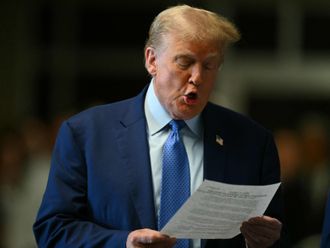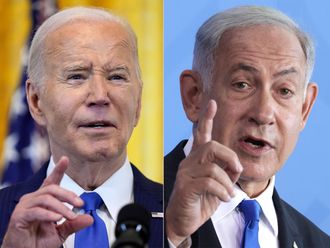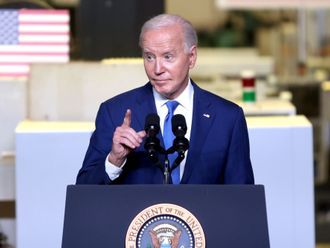Washington: Nearly 15 years after the United States adopted a programme to interrogate terrorism suspects using techniques now widely considered to be torture, no one involved in helping craft it has been held legally accountable.
Even as President Barack Obama acknowledged that the United States “tortured some folks”, his administration declined to prosecute any government officials.
But now, one lawsuit has gone further than any other in American courts to fix blame. The suit, filed in October 2015 in US District Court in Spokane, Washington, by two former detainees in CIA secret prisons and the representative of a third who died in custody, centres on two contractors, psychologists who were hired by the agency to help devise and run the programme.
One of them, James E. Mitchell, has written a book to be released Tuesday about his involvement in the programme. In the book, he argues that he acted with government permission and that he and Bruce Jessen, the other psychologist and his co-defendant in the lawsuit, received official CIA medals.
Legal experts say the incoming Donald Trump administration could force the case’s dismissal on national security grounds. Deciding whether to invoke the state secrets privilege over evidence requested in the lawsuit could represent the new president’s first chance to weigh in on the issue of torture. Trump has endorsed the effectiveness of torture and said he would bring back waterboarding, though it is not clear now that he intends to do so.
Lawyers for Mitchell and Jessen have clashed with the Justice Department over what classified evidence is required to help defend against the suit’s allegations that they “designed, implemented, and personally administered an experimental torture programme.”
Last month, despite US government opposition, the court approved the defendants’ request for oral depositions of John Rizzo, a former CIA acting general counsel, and Jose Rodriguez, the former chief of the agency’s clandestine spy service who also headed the CIA’s Counterterrorism Center.
Mitchell was first publicly identified as one of the architects of the CIA’s “enhanced interrogation” programme nearly a decade ago, and has given some news media interviews, but is now providing a more detailed account of his involvement.
His book, ‘Enhanced Interrogation: Inside the Minds and Motives of the Islamic Terrorists Trying to Destroy America’, (Crown Forum) was written with Bill Harlow, a former CIA spokesman. It was reviewed by the agency before release.
In the book, Mitchell alleges that harsh interrogation techniques he devised and carried out, based on those he used as an Air Force trainer in survival schools to prepare airmen if they became prisoners of war, protected the detainees from even worse abuse by the CIA.
Henry F. Schuelke, a Washington lawyer with the firm Blank Rome, who represents Mitchell and Jessen, said he believed his clients “were left holding the bag” while CIA officials involved in the program have been protected from the lawsuit. “The government and its officers, namely many of the CIA officers, enjoy sovereign immunity,” Schuelke said in an interview.
Schuelke and colleagues have argued in court that the senior US District Court judge, Justin L. Quackenbush, should dismiss the case because, among other reasons, “sovereign immunity” extended to their clients, who were acting on the government’s behalf. But the judge denied the motion and the case has proceeded under the Alien Tort Statute, which allows foreigners to sue in United States court for violations of their human rights.
If the former detainees are successful, it would be the first time a US civilian court has held individuals accountable for their role in developing counterterrorism policies after the September 11, 2001, attacks.
“All of the other cases have been thrown out on procedural grounds,” said Jonathan Hafetz, a professor at Seton Hall Law School. “If this is successful, it could pave the way for other torture victims to seek redress.” Still, some lawyers say it could be difficult for the plaintiffs to prevail.
The case has proceeded in large part because the psychologists’ role in the programme has been documented, particularly in the declassified executive summary of a Senate Intelligence Committee investigation of the interrogation program released in 2014.
While the Justice Department has fought to restrict the scope of sensitive information that it has been asked to produce in the case, it has thus far not asserted the state secrets privilege, a broad power to protect national security that could effectively shut down the suit.
That could change, analysts say, under the Justice Department in the Trump administration. Representatives for Trump did not reply to requests for comment on the case, scheduled for trial in June.
Lawyers for the detainees said they had no need for classified information. “There are dramatically more details in the public record about what the CIA and the psychologists did,” said Steven Watt, a lawyer with the American Civil Liberties Union.
“Now, any attempt to argue that torture is a state secret would be a transparent attempt to evade accountability.”












